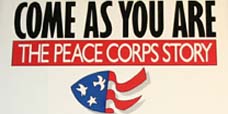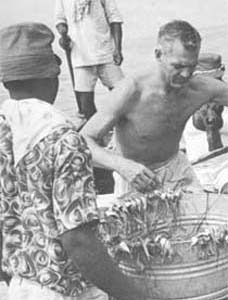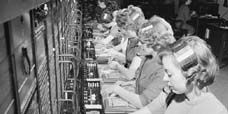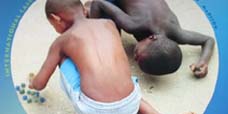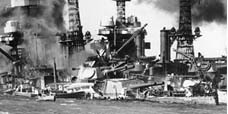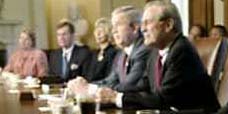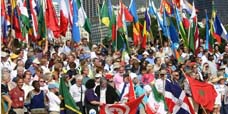
Paul Theroux recalls high times with Hunter S. Thompson, the writer and self-described outlaw who died last week
Travel and fiction writer Paul Theroux recalls high times with Hunter S. Thompson, the writer and self-described outlaw who died last week
By Paul Theroux
THE GUARDIAN , LONDON
Monday, Feb 28, 2005,Page 16
The suicide of a satirist such as Hunter S. Thompson is particularly disturbing: You remember the things he wrote, the threats, the promises, or just the extravagance of his titles and subtitles -- The Kingdom of Fear, Confessions of a Political Junkie, Trapped like a Rat in Mr Bill's Neighborhood, Death of a Poet, Loathsome Secrets of a Star-Crossed Child in the Final Days of the American Century, A Savage Journey, A Strange and Terrible Saga -- and you think, "He wasn't kidding."
Hunter made something of a fetish of seeming to use words idly, as the bombast of comic effect, particularly his repetition of "fear and loathing." But the fear and loathing was real to him. He tended not to pull his punches, nor to deal in ambiguities. "You are a trigger-happy little bastard," he wrote to me affectionately. And also, "The pig has gone into the tunnel. But so what? We are champions." He knew how to buck one up.
As for the rest of humanity, politicians in particular -- for whom he had lots of time as a fascinated journalist but no sympathy -- his usual cries were: "Swine! Pig! Weasel! Crook! Fascist! Nazi! Diseased cur!"
He was a living reminder that satire at its best is a savage business. He was unsparing, self-punishing in the way he lived his life. His friends adored him. Such a brooding presence could not be the life of the party but he was always its soul.
He could also be an oblique and fearful man, less a drug addict than, as he sometimes called himself, a dope fiend. "The brutal reality of politics alone would probably be intolerable without drugs," he said. "Anybody who covers his beat for 20 years -- and my beat is `The Death of the American Dream' -- needs every goddamned crutch he can find." He also said, "It may be that every culture needs an Outlaw god of some kind, and maybe this time I'm it."
He was a boisterous recluse who also needed to be seen and heard. He was by nature a prowler, a social animal, inviting disapproval, provoking insults. He seldom dealt with books; he was no reader. Except for snippets from the Book of Revelation, which he knew almost by heart, his literary quotations have the odor of the anthology about them, or the simplicity of having been overheard or borrowed, not quarried from a dense text. You need to be able to sit still to be a reader.
There is a peculiar sort of irritable and sober and timid Mr Hyde who is always attempting with the use of drugs to transform himself into a bolder and happier Dr Jekyll; to transform himself for the purposes of art and science from a cranky destructor into a student of human behavior. It is the Stevenson story turned on its head. I saw this in Hunter. Released from his rages and his babbling, he acquired a much sunnier mood, and after the drugs had taken hold he was calmer, more rational, with a greater attention span; under the influence Hunter called himself "Doc."
He was always stuffing something into his mouth, and his chain-smoking wasn't even half of it. I wonder if I ever saw him sober? He wasn't an alcoholic, but he was certainly a drunkard; and though he could be compulsive, I don't think he was a drug addict -- not an obsessed and needy user of addictive drugs, at any rate, but what is generally known as a stoner and a sniffer. An addict is helpless, but drug-taking was for him a decision.
Not shy but strangely timid (he never traveled alone, he was innocent of the practical details of travel), Hunter at his most extroverted could be almost psychotic. He was deaf and distracted in the way serious drug takers become, even when they are sober, either shouting or whispering. I have no idea how he managed to write a word, but he wrote a dozen memorable books. He hardly slept, and he kept the strangest hours. Any friend of Hunter's can recount the phone ringing at 3am and the low conspiratorial growl, "It's 'Unner!"
He loved Hawaii, where I live, for its fine weather and its air of tolerance and its remoteness. Here he is in the luxury suite of a beachside hotel in Hawaii, sitting amid a clutter of room-service food, drinking beer and smoking and bantering and watching a basketball game. He was all his life a passionate sports fan. (Until his death he had a weekly column on the ESPN Sports Network Web site.) He happened to be in Hawaii to cover the Honolulu Marathon, but at the same time was keeping up with the National Football League Playoffs and the front-runners in the NBA. He was barking at the TV and picking at his food.
Much of the time he could be unintelligible, and there were times when I had no idea what he was talking about. It wasn't just his Kentucky accent (he habitually called himself a hillbilly); it was hoarse drawls and throat clearings, all the things in his mouth, for he was now drinking whisky and the cigarette was gone, replaced by a doobie he was sucking.
"Want to get high?" he called to his fiance (soon to be his wife, and now his widow) Anita. Hunter took out a vial and tapped powder into his palm. Anita replied that they had a plane to catch around midnight and that she had to pack all their bags. She was not cross. She was being reasonable -- it was not possible to take hits of cocaine and also fold shirts and zip up duffels.
Within minutes, Hunter had become serene -- tranquilized is the perfect word. He was legless, of course, but more cheerful, more comprehensible, more relaxed and rational, more affectionate, more conscious of the ups and downs of the basketball game, not barking anymore. He was Doc again, talking about the results of the marathon and urging me to consider joining him as an associate professor in the School of Arts and Sciences at the University of Hawaii.
"We'll offer a course on writing," he said, "and not just writing, but life, travel, philosophy, books, journalism, the whole thing. Do it together, you and me up there in the lecture hall. Every goddamned student will want to take the course. It'll be great. We'll meet girls, we'll make money, check out the surf. I'm sick of the horrible winter and all the snow in Colorado. This is the place, man. We just have to think of a name for the course. Hey, I've already cleared it with the president."
He wasn't joking -- the president of the University of Hawaii was an old friend. Hunter knew everyone -- writers who saw him for the true satirist he was, actors who wanted to appear in films about him (two feature films had been made of his exploits, Bill Murray playing him in the first, Johnny Depp in the second), journalists looking for a profile (five substantial biographies of Hunter were published in his lifetime), artists who wanted to paint him, photographers who wanted him to pose -- and he would sometimes oblige, naked, drinking, shooting a .44 Magnum, sometimes all at once.
After he arrived back in Colorado from that night of transformation in Hawaii, he told me he had made an important travel discovery at the airport.
"If you're really stoned -- really mellow, really coked up," he said, "they put you in a wheelchair and you're the first passenger to board! It was a great flight. Went by in a flash."
I have not seen his like in Europe; but he was a familiar American type, not much louder but a lot more imaginative, a country boy ("I was a juvenile delinquent"), who had served in the US Air Force for two years, traveled to South America, worked on small-town newspapers in such places as Middletown, New York. He made his name 40 years ago by chronicling the notorious motorcycle gang, the Hell's Angels, and writing an excellent book about the motorcycle culture.
He was always looking for the newest excitement. The dignified and appreciative prose style (even when describing gang rape and mayhem) of his Hell's Angels does not much resemble the controlled hysteria and satirical abuse of his later books. He quickly realized true objectivity was not possible and that he was at least important as whatever he was writing about. To this personal intrusion that is the heart of his writing he gave the name gonzo journalism.
Already obituarists are speaking of his demons. But his demons are familiar, because they are our demons, most of ours anyway: fatuous politicians who see war as an answer, the junking of toxic waste, an increasingly more poisoned planet, the selling mechanism, weasels in government, posturing celebrities, brainless academics, fat lazy children, liars in power.
Hunter said that President Nixon represented "that dark, venal and incurably violent side of the American character." He went on attacking the president. On Nixon's death he spat on his grave. It is one of my favorite Thompson pieces (reprinted in his collection Better than Sex). As the funeral orations were being delivered and everyone was praising Nixon, Thompson wrote in "He Was a Crook," published in Rolling Stone (1994), one of the best, the funniest, the most sustained polemics I have ever read.
Midway through it, in a burst of candor, Hunter reflects on his harsh words and says, "but I have written worse things about Nixon many times, and the record will show that I kicked him repeatedly long before he went down. I beat him like a mad dog with mange every time I got a chance, and I am proud of it."
The epigraph to Fear and Loathing in Las Vegas is Dr Johnson's statement: "He who makes a beast of himself gets rid of the pain of being a man." It would not be a bad epitaph. He liked getting liquored up and doing battle -- his memos to various magazines reek of alcohol but are readable for their truth and their boozy wit. He called himself "a political junkie."
Well before the Iraq war, Thompson wrote: "We have become a Nazi monster in the eyes of the whole world -- a nation of bullies and bastards who would rather kill than live peacefully. We are not just whores for power and oil, but killer whores with hate and fear in our hearts. We are human scum, and that is how history will judge us .... George W. Bush does not speak for me or my son or my mother or my friends or the people I respect in this world."
Late in Bill Clinton's first campaign for the presidency, Hunter flew to Little Rock and spent an afternoon with the man and saw into his heart, describing him as humorless, ambitious and eager to please. The piece ran in Rolling Stone magazine, and Clinton must have been stung by it because he continued, in notes on White House stationery, to propitiate Hunter ("Dear Doc"), even when Hunter replied with mocking jibes or po-faced scorn. I think Thompson remained a writer of significance because of his utter contempt for power -- political power, financial power, even show-biz juice.
America is a country that celebrates fakes and posturers, but Hunter S. Thompson, who shot himself to death inside his walled compound, Owl Farm, in Colorado, on February 20, was the real thing; the genuine article, as he would have said; the real McCoy.
He lived the life he wanted as half outlaw, half hero, without any inhibition, broke the law when he felt it impinged upon him, was beholden to no one, shot holes in any fakery he found -- either with a .44 Magnum or a breezy vocabulary, and he died the same way, at the moment of his choosing, probably in great pain from a variety of ailments: spinal injury, broken bones and psychic wounds. "Pain" in the metaphysical sense, too.







